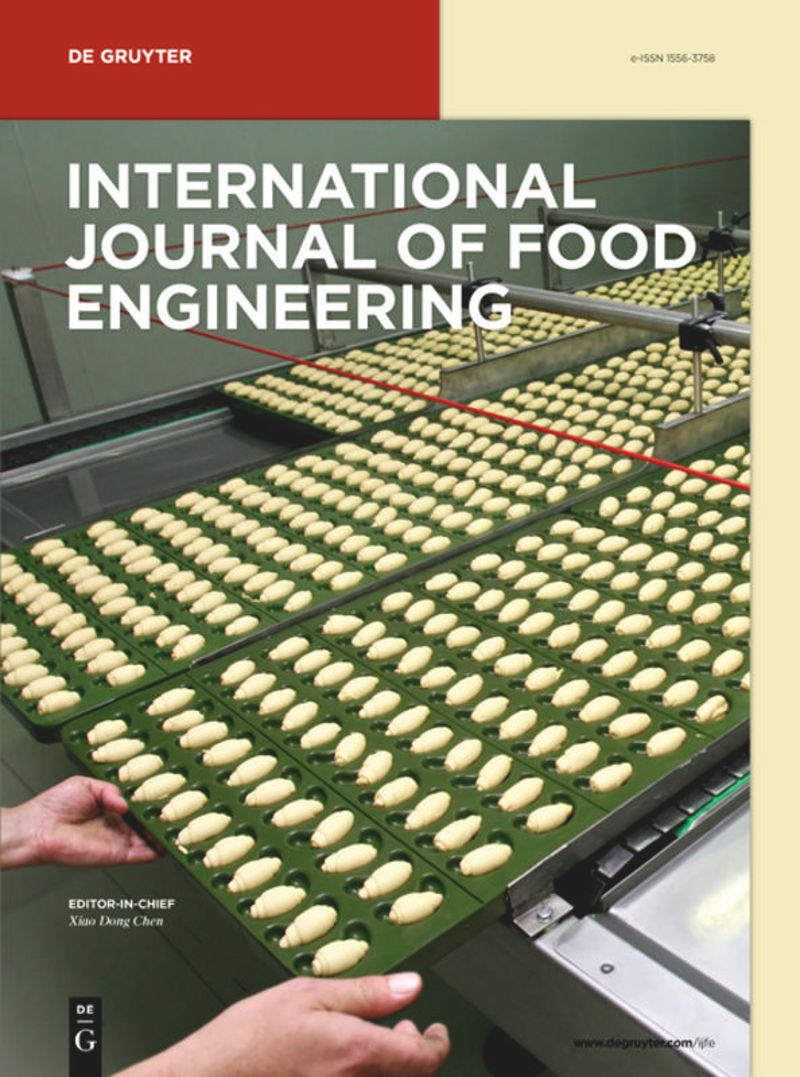The effect of different plant extracts on the oxidative stability of microencapsulated anchovy oil
IF 1.4
4区 农林科学
引用次数: 0
Abstract
Abstract Lactose and sodium caseinate were used as wall materials in microencapsulation of fish oil by spray drying. Thyme, rosemary, and laurel extracts were utilized to enhance oxidative stability. Efficiency of antioxidant capacity of plant extracts was compared with BHT. Fish oil encapsulates with rosemary extract exhibited better protection against lipid oxidation (0.36 mmol MDA/kg) than the control group (2.92 mmol MDA/kg) at +4 °C. Hue angle properties of encapsulated fish oil with the laurel extract showed the highest change. The lowest peroxide value (PV) was detected in the 1500 ppm rosemary group (5.13 mEq O2/kg oil) and 250 ppm BHT group (5.90 mEq O2/kg oil) after the spray drying. Also, these groups had the lowest TBARs values during the storage. It was observed that the pAV of CG2 (BHT Control), RE1 (1000 ppm rosemary extract), RE2 (1500 ppm rosemary extract), and LE2 (1500 ppm laurel extract) groups remained below six during 8 months of storage. Volatile components of encapsulated fish oil were the highest in control, thyme and laurel extracts compared to the microcapsules with rosemary extracts in terms of total aldehyde generation. Sensory analysis showed that fresh fish odor was better preserved with rosemary extract compared to other plant extracts. It was concluded that microencapsulation of fish oil with sodium caseinate and lactose as wall material and rosemary and laurel extracts as antioxidants enhanced the oxidative stability of the microcapsules.不同植物提取物对微胶囊化凤尾鱼油氧化稳定性的影响
摘要以乳糖和酪蛋白酸钠为壁材,采用喷雾干燥法制备鱼油微胶囊。百里香、迷迭香和月桂提取物用于增强氧化稳定性。将植物提取物的抗氧化能力与BHT进行了比较。迷迭香提取物包裹的鱼油对脂质氧化有更好的保护作用(0.36 毫摩尔 MDA/kg)高于对照组(2.92 毫摩尔 MDA/kg) °C。月桂提取物包封鱼油的色调角特性变化最大。在1500 ppm迷迭香组(5.13 mEq O2/kg油)和250 ppm BHT组(5.90 mEq O2/kg油)。此外,这些组在储存期间具有最低的TBAR值。观察到CG2(BHT对照)、RE1(1000 ppm迷迭香提取物),RE2(1500 ppm迷迭香提取物)和LE2(1500 ppm月桂提取物)组在8个月的储存期间保持在6以下。就总醛生成而言,与含有迷迭香提取物的微胶囊相比,对照、百里香和月桂提取物中的胶囊鱼油的挥发性成分最高。感官分析表明,与其他植物提取物相比,迷迭香提取物能更好地保存鲜鱼的气味。结果表明,以酪蛋白酸钠和乳糖为壁材,迷迭香和月桂提取物为抗氧化剂的鱼油微胶囊化提高了微胶囊的氧化稳定性。
本文章由计算机程序翻译,如有差异,请以英文原文为准。
求助全文
约1分钟内获得全文
求助全文
来源期刊
CiteScore
3.20
自引率
0.00%
发文量
52
审稿时长
3.8 months
期刊介绍:
International Journal of Food Engineering is devoted to engineering disciplines related to processing foods. The areas of interest include heat, mass transfer and fluid flow in food processing; food microstructure development and characterization; application of artificial intelligence in food engineering research and in industry; food biotechnology; and mathematical modeling and software development for food processing purposes. Authors and editors come from top engineering programs around the world: the U.S., Canada, the U.K., and Western Europe, but also South America, Asia, Africa, and the Middle East.

 求助内容:
求助内容: 应助结果提醒方式:
应助结果提醒方式:


